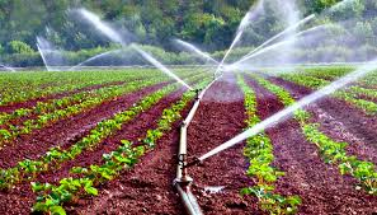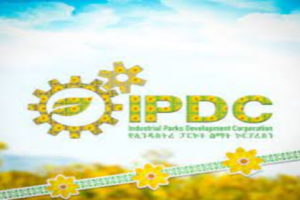
Following the national political reform, Ethiopia had introduced a new investment proclamation in 2020, which allowed foreign investors to engage in almost all economic sectors that were protected for domestic ones.
The country has been offering different incentives for local and foreign investors depending on Council of Ministers Investment No. 5171/2022 regulation. As to the regulation, an investor who engages in remote areas with very low infrastructure development shall be entitled to an income tax deduction of 30 percent for three consecutive years after the expiry of the income tax exemption period specified in the schedule.
Also, a five-year income tax exemption shall be provided for those who invest in new, atypical, and selected tourist destination areas in hotels, lodges, and resorts with a rank of a star.
Likewise, the country introduced several reforms designed to ease the process of investing in Ethiopia by introducing multi-year investment visas, improving investment protections, expanding One-Stop-Service, improving investment protections, fast-tracking investor grievance handling, and other measures.
The reforms have been recognized as global best practices, and in 2021 Ethiopia received the top “Gold” Award offered by World Association of Investment Promotion Agencies (WAIPA) in partnership with World Bank Group (WBG).
According to the information obtained from Ethiopian Investment Commission, the country has been investing, 10% of its GDP in infrastructure development over the past decade to create conducive infrastructure for investment and achieve national development plan. Electric power has been offered for investment firms and residents of the country with the lowest utility rates in the world.
The country has built a 780-kilometer Addis Ababa–Djibouti railway with the capacity to transport 24.9 million tons of freight annually to serve the growing demand for transportation and facilitate import-export trade. Since its operation the Addis-Djibouti Railway has significantly reduced transport time for freight, cutting shipping times from three days to just 10 hours.
Concerning investment market opportunity in the country the commission stated that with a population of 120 million and a rapidly growing middle class, Ethiopia is the second largest consumer market in Africa. Further, proximity to the Middle East, Europe, USA and Asia markets, makes it an ideal location for trading in the global economy.
The commission has outlined five priority investment sectors that include agriculture, manufacturing, tourism, information communication technology (ICT) and the mining sectors.
Emphasizing agricultural investment opportunity, the commission said that the country has vast arable land, a favorable climate, and water and land resources. These have made it an incredible hub for investing in agriculture. The country boasts about 74.3 million hectares of suitable land for agriculture, while its population of close to 132 million people makes it the second-largest market in Africa. Eighteen major agro-ecological zones that make the country suitable for diverse agricultural investment opportunities have been identified.
Given its diverse topography and geographical location, Ethiopia is suitable to produce some of the world’s most coveted crops, such as cereals, pulses, oilseeds, a wide range of fruits and vegetables, coffee, tobacco, sugar cane, tea, spices, and cotton, among others. The country is among the world’s largest producers of coffee and the 3rd largest producer of Arabica beans in the world (USDA). We are also the top non-EU exporter of cut flowers to the EU market and the 2nd largest flower exporter in Africa.
Speaking at the closing of the Invest in Ethiopia 2025 Forum that has been held from May 12-13 in Addis Ababa, Commissioner of the Commission Zeleke Temesgen (PhD) said that Ethiopia has implemented a lot of legal and regulatory reforms, including a homegrown economic reform agenda, to make the investment climate more favorable and accessible. These reforms have now enabled the effective implementation of various investment activities.
Zeleke noted that the government is working in collaboration with all stakeholders, further making Ethiopia more conducive for investment. He also confirmed that the Ethiopian Investment Commission is carrying out various tasks to ensure that investors seeking to do businesses in Ethiopia receive clear and efficient services.
Explaining the goal of the forum, the commissioner said that showcasing the country’s investment potential and forwarding direction on the future investment state of the country are the major targets of the forum.
Emphasizing the outcome of the forum, the commissioner said that the signing of an agreement of 1.6 billion USD with five foreign anchor investment companies is a major outcome of the forum. These companies are set to operate in mining and energy sectors within Ethiopia’s special economic zones.
Founder and CEO of Huajian Group Zhang Huarong, on his part, speaking at the forum, said that the current global economic climate and Ethiopia’s domestic reforms have led some foreign investors to reconsider their investments in the country.
The CEO recognized the efforts of the Ethiopian Investment Commission, the Customs Commission, and the Immigration and Citizenship Services in modernizing their operations through technology.
The Oromia State Investment and Industry Bureau also disclosed that following the national economic reform, the number of investments has been increasing in the regional state. As a result, exports of domestically produced products have been growing.
Digitalization of service delivery is being done to facilitate investment opportunities in the regional state to provide urgent service in different government institutions. The regional state has earned over 800 million USD in the past ten months through exporting 187 thousand tons of products.
Likewise, the quality of domestically produced export products has increased significantly because of improvements in service delivery and other factors.
130 entrepreneurs are involved in foreign trade activities, of which 75 are involved in the manufacturing sector in the past ten months, he said.
The production capacities of industrial companies in the regional state have reached 61%, he said, adding that the sector has created job opportunities for 2.5 million citizens.
107 industries have produced more than 4 million tons of 96 types of previously imported products in the state and have been able to save 1.1 billion USD, he said.
President of Oromia Regional State Shimalis Abdisa, speaking at the Oromia Investment Forum that was held at the end of May 2025, said that currently Oromia is more ready for investment than ever.
The regional state has passed major decisions to reduce the obstacles in the investment sector, he said, adding that the Geda Special Economic Zone has been established to encourage local and foreign investment firms. The establishment of Sheger City administration and Bulbula Integrated Agro-Industrial Park are additional pull factors.
Although there have been improvements to solve the obstacles in the investment sector, stakeholders should work in coordination with firms to solve the existing problems and promote investment in the regional state, the president added.
BY TAMERU REGASA
THE ETHIOPIAN HERALD SUNDAY EDITION 8 JUNE 2025



